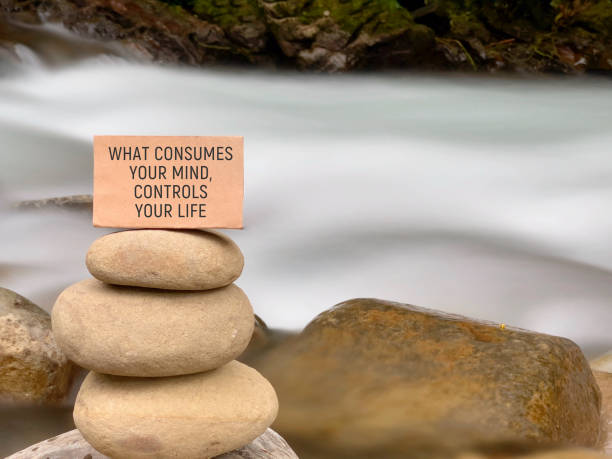We may earn money or products from the companies mentioned in this post.
Life can be complex, making it hard to focus on what’s truly important. Your inner peace and self-contentment are key. This journey needs patience, self-awareness, and a commitment to inner peace. You’ll learn how to start this path and why self-contentment is vital.
Understanding the value of inner peace and self-contentment is the first step. This guide will give you the tools and knowledge to begin your journey. You’ll learn how to find self-contentment and inner peace.
Key Takeaways
- Self-contentment is a journey that requires patience and self-awareness
- Inner peace is essential for achieving self-contentment
- Cultivating self-awareness is crucial for understanding your values and goals
- Practicing mindfulness can help you stay present and focused
- Developing a deeper understanding of yourself is key to achieving self-contentment and inner peace
- Self-contentment is a continuous process that requires effort and dedication
Understanding the Path to Inner Peace
Starting your journey to self-contentment means learning about inner peace. It’s a feeling of being calm and at ease with yourself and the world. It’s about self-acceptance and knowing yourself well, helping you face life’s challenges with confidence.
To find inner peace, you need to practice mindfulness. This can be through meditation, yoga, or just taking time each day to breathe and quiet your mind. These practices help you understand your thoughts, feelings, and actions better. This way, you can make positive changes and live more peacefully.
The Definition of True Inner Peace
True inner peace isn’t just not feeling stressed or anxious. It’s a deep feeling of happiness and well-being that comes from within. It’s about being connected to yourself and living a life that truly matters to you.
Common Obstacles to Finding Peace Within
Many things can block your path to inner peace, like negative thoughts, self-doubt, and fear. It’s important to know these obstacles and find ways to overcome them. This can include being kind to yourself, changing negative thoughts, and believing in your growth.
Why Self-Acceptance Matters
Self-acceptance is key to inner peace. It lets you love and accept yourself just as you are. By accepting yourself, you become more confident and resilient.
Remember, finding inner peace is a journey. Be patient, kind, and compassionate with yourself as you learn to be more mindful and self-aware.
The Psychology Behind Self-Contentment
Exploring self-contentment means looking into its psychological roots. Self-awareness is key to understanding yourself better. This helps in accepting yourself and finding peace within. Meditation boosts self-awareness, helping you connect with your thoughts and feelings.
Meditation offers many benefits. It can lower stress and anxiety, improve emotional control, and sharpen your mind. These advantages help you face life’s hurdles more confidently. Some main benefits include:
- Increased self-awareness and emotional intelligence
- Improved mental health and well-being
- Enhanced cognitive function and focus
Remember, self-awareness is crucial for reaching your full potential. Meditation and other practices help you understand yourself and the world better. Regular practice leads to a more fulfilling life, filled with purpose and joy.
Essential Practices for Cultivating Inner Peace
To find inner peace, it’s key to have a daily routine that cares for your mind, body, and soul. Mindfulness helps you understand yourself better. This understanding leads to self-compassion, making you face life’s challenges calmly and clearly.
Some important practices for inner peace include:
- Daily mindfulness techniques, such as meditation and deep breathing exercises, to help calm the mind and reduce stress
- Journaling for self-discovery, to help process emotions and gain insight into your thoughts and behaviors
- Creating personal boundaries, to help protect your time and energy and maintain healthy relationships
By adding these practices to your daily life, you’ll grow in self-awareness and acceptance. This allows you to find peace and live a more genuine, caring life.
Daily Mindfulness Techniques
Daily mindfulness, like meditation and deep breathing, can lessen stress and boost self-awareness. By spending a few minutes each day on your breath, you can find peace and clarity within.
Transforming Negative Self-Talk into Self-Compassion
On your journey to self-contentment, it’s key to tackle negative self-talk. This mindset can block your path to self-acceptance and self-compassion. By seeing the damage it causes, you can start to change it into a kinder way of thinking.
Building self-compassion is vital. It means treating yourself with the same kindness and patience you’d offer a friend. This change can help you see yourself in a more positive light, boosting your self-acceptance and self-esteem.
Identifying Harmful Thought Patterns
To change negative self-talk, first spot the harmful thoughts holding you back. Listen to your inner voice and notice any harsh or critical thoughts. Ask if these thoughts are true or just your own doubts.
Developing Positive Self-Dialogue
After spotting the negative thoughts, start replacing them with positive ones. Work on having a supportive inner voice that encourages self-acceptance and compassion. Use positive affirmations like “I am capable and competent,” or “I am worthy of love and respect.”
By adding self-acceptance and compassion to your daily life, you’ll grow a stronger, more positive mindset. Remember, changing negative self-talk takes time and effort. But with patience and dedication, you can build a kinder, more supportive relationship with yourself.
Living Authentically in Today’s World
On your journey to self-contentment, living authentically is key. It means being true to yourself and your values, even when others try to change you. This way, you’ll find a deeper inner peace, which is vital for self-contentment.
Being authentic requires self-awareness. It’s about knowing yourself and not needing others’ approval. Living this way makes you more confident and ready for life’s ups and downs.
Some benefits include:
- Increased self-acceptance and self-love
- Improved mental health and well-being
- Stronger, more meaningful relationships
- Greater sense of purpose and direction
To find inner peace and self-contentment, focus on your values. Set boundaries, practice mindfulness, and do things that make you happy. By staying true to yourself, you’ll face life’s challenges with more ease and confidence. This leads to a deeper sense of inner peace and self-contentment.
Conclusion: Your Ongoing Journey to Self-Fulfillment
The path to self-acceptance and inner peace is a long one. It needs patience, persistence, and a strong will to grow. Mindfulness and meditation are great tools, but the key is to keep learning about yourself and treating yourself with kindness.
There’s no end to this journey – it’s a lifelong search for your true self. Face the good and bad times with an open heart. Celebrate your wins, no matter how small, and be gentle with yourself when things get tough.
By focusing on your growth, you’ll learn more about yourself and find happiness in your life. Trust the journey, respect your own path, and always remember to be kind to yourself.
The path to self-contentment may twist and turn, but with each step, you’ll become stronger, wiser, and more at peace with yourself.
FAQ
What is the definition of true inner peace?
Inner peace is feeling calm and content within. It’s about accepting and understanding yourself fully. You feel at peace with your thoughts and emotions, free from outside stress.
What are some common obstacles to finding peace within?
Finding inner peace can be hard due to negative self-talk and attachment to things. Unresolved emotions and a lack of self-awareness also get in the way. To overcome these, you need to reflect on yourself, be mindful, and grow personally.
Why is self-acceptance an important aspect of inner peace?
Self-acceptance is key to inner peace. It lets you love yourself, flaws and all. Accepting yourself fully helps you avoid constant self-criticism. This acceptance is the base for self-compassion, vital for peace.
How can daily mindfulness techniques help cultivate inner peace?
Mindfulness practices like meditation and deep breathing help a lot. They calm your mind, reduce stress, and increase awareness. Being present and accepting the moment leads to peace and balance.
What is the role of journaling in the journey to self-contentment?
Journaling is a powerful tool for self-contentment. It helps you understand yourself better and work through emotions. Through journaling, you can grow personally and find inner peace.
How can creating personal boundaries support the cultivation of inner peace?
Setting personal boundaries is crucial for inner peace. They protect you from outside demands that can drain you. Respecting your boundaries makes you feel empowered and in control.
What is the importance of transforming negative self-talk into self-compassion?
Changing negative self-talk to self-compassion is vital for peace. Harsh self-criticism can harm your self-esteem. Self-compassion helps you face challenges with resilience and acceptance, leading to peace.
How can living authentically contribute to inner peace and self-contentment?
Living authentically aligns you with your values and true self. It brings purpose, fulfillment, and integrity. Being true to yourself lets you focus on self-love, leading to deeper peace and contentment.
*We may utilize AI content

